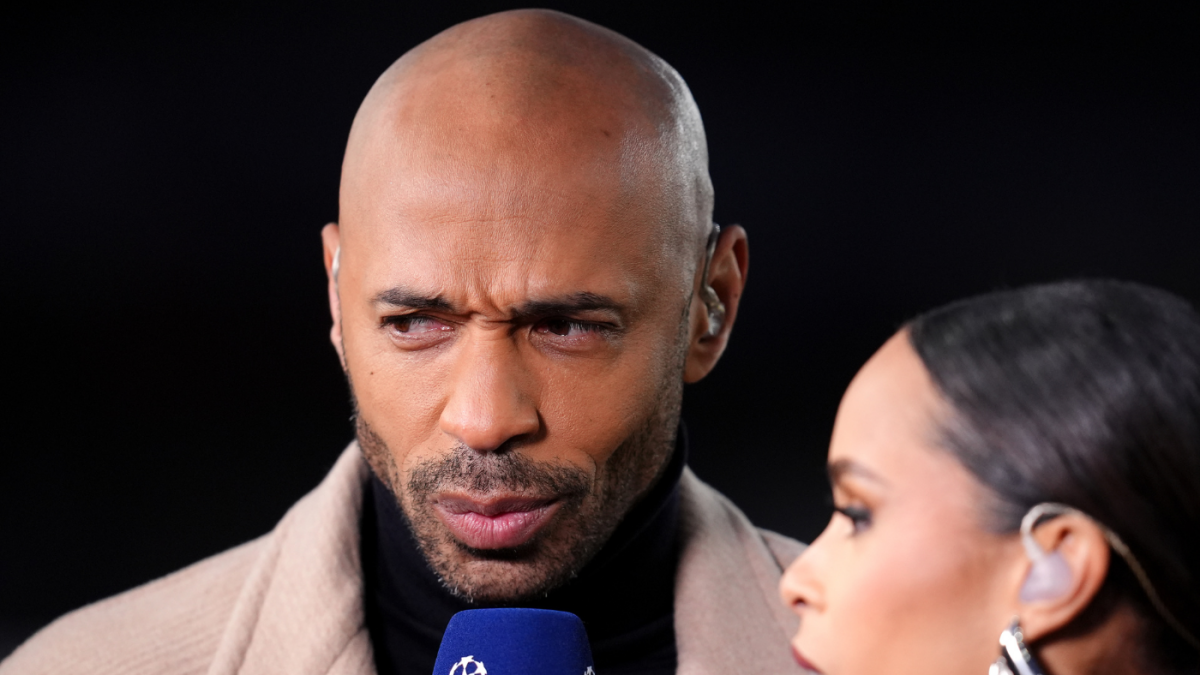“`markdown
Thierry Henry’s Arsenal Analysis: Diagnosing the Problems, Prescribing the Solutions
Few voices carry as much weight in Arsenal discourse as Thierry Henry’s. When the club legend dissects the Gunners’ performances, fans listen—not just out of respect for his legacy, but because his critiques cut to the core of systemic issues. His recent assessment of Arsenal’s 1-0 defeat to PSG in the Champions League semi-final first leg wasn’t just a post-match soundbite; it was a blueprint for what must change if the club hopes to compete among Europe’s elite.
The Performance Gap: A Reality Check
Henry’s blunt verdict—*”PSG were much superior, for me, in this match”*—wasn’t hyperbole. Statistically and stylistically, Arsenal were second-best: outpassed, outmaneuvered, and outthought. The scoreline flattered them. This wasn’t a case of bad luck or isolated errors; it was a symptom of deeper flaws that have lingered for seasons.
Key issues exposed:
– Defensive vulnerability: PSG’s goal came from a preventable breakdown—a recurring theme for Arsenal.
– Midfield imbalance: The lack of a true defensive midfielder left gaps PSG exploited with ease.
– Predictable attacking patterns: Arsenal’s buildup was slow and telegraphed, allowing PSG to regroup.
Henry’s critique went beyond frustration; it highlighted a *structural* deficit in Arsenal’s squad construction and tactical flexibility.
—
Defensive Woes: Fixing the Leaks
Arsenal’s backline has been a paradox: capable of resilience (e.g., clean sheets against lesser sides) but prone to collapse under pressure. Against PSG, the absence of composure under high pressing was glaring.
What must change?
Henry’s playing career exemplified defensive awareness—even as a forward, he tracked back. This ethos is missing in today’s squad.
—
Midfield Malaise: The Engine Room Stalls
PSG’s midfield trio controlled the game’s tempo, while Arsenal’s looked disjointed. The absence of a true *destroyer* (a la Vieira or Gilberto Silva) hurt them, but so did the lack of creative risk-taking.
Solutions:
– Sign a dominant #6: A player who shields the defense and recycles possession under pressure.
– Balance creativity and grit: Martin Ødegaard’s flair needs a counterpart with physicality (e.g., Declan Rice’s profile).
– Pressing cohesion: Arsenal’s press was easily bypassed. Henry emphasized *synchronized* pressing—a hallmark of his 2003-04 “Invincibles.”
—
Tactical Evolution: Breaking the Predictability Curse
Mikel Arteta’s system relies heavily on structured buildup, but top teams like PSG punish rigidity. Henry hinted at the need for *adaptive* tactics:
– Variety in attack: Overdependence on Bukayo Saka makes Arsenal one-dimensional. More rotations (e.g., Gabriel Jesus dropping deep) could disrupt defenses.
– Counterattacking urgency: Arsenal rarely threaten on transitions. Henry’s legendary speed and directness are sorely missed.
– In-game adjustments: Arteta’s substitutions often come too late. Proactive changes could swing tight matches.
—
The Mental Hurdle: Playing Without Fear
Henry didn’t just critique tactics; he questioned mentality. Arsenal’s players seemed *”afraid to lose”* rather than *”determined to win.”* This stems from:
– Inexperience in big games: Many starters are new to Champions League knockout stages.
– Leadership vacuum: Without a vocal on-field general (think: Tony Adams, Patrick Vieira), composure wavers.
Building resilience:
– Psychological coaching: Elite clubs employ specialists to fortify mental toughness.
– Embracing pressure: Henry thrived under expectations. This squad must learn to do the same.
—
The Second Leg: A Litmus Test
Henry insists the tie isn’t over, but progression hinges on radical improvement. Key focus areas for the return leg:
—
Conclusion: Henry’s Challenge to Arsenal’s Identity
Thierry Henry’s analysis was a mirror held up to Arsenal: the reflection showed a team with talent but without the ruthlessness or tactical sophistication to conquer Europe. His words weren’t an indictment but a *call to arms*.
The roadmap is clear:
– Invest in a spine (CB, DM, striker) that balances youth and experience.
– Foster tactical versatility to adapt to elite opponents.
– Cultivate a winning mentality that transcends individual brilliance.
The PSG second leg isn’t just about surviving—it’s about proving Arsenal can evolve. As Henry knows better than anyone, greatness isn’t given; it’s earned through grit, intelligence, and unshakable belief. The question now is whether this Arsenal squad will heed his lessons or repeat their mistakes. The answer will define their future.
“`











